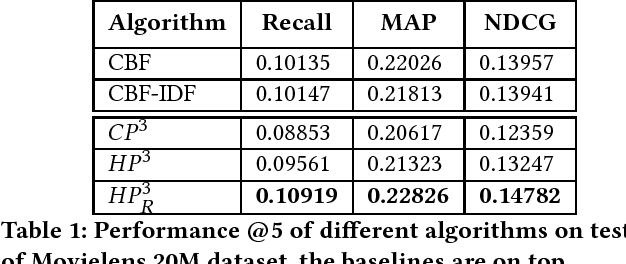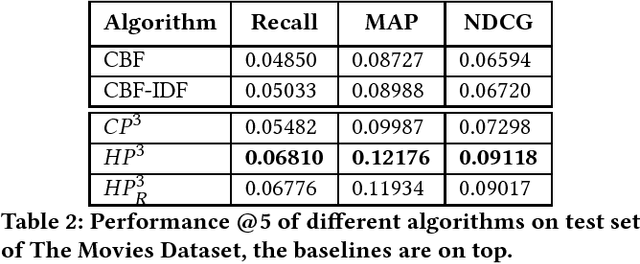A novel graph-based model for hybrid recommendations in cold-start scenarios
Paper and Code
Aug 31, 2018

Cold-start is a very common and still open problem in the Recommender Systems literature. Since cold start items do not have any interaction, collaborative algorithms are not applicable. One of the main strategies is to use pure or hybrid content-based approaches, which usually yield to lower recommendation quality than collaborative ones. Some techniques to optimize performance of this type of approaches have been studied in recent past. One of them is called feature weighting, which assigns to every feature a real value, called weight, that estimates its importance. Statistical techniques for feature weighting commonly used in Information Retrieval, like TF-IDF, have been adapted for Recommender Systems, but they often do not provide sufficient quality improvements. More recent approaches, FBSM and LFW, estimate weights by leveraging collaborative information via machine learning, in order to learn the importance of a feature based on other users opinions. This type of models have shown promising results compared to classic statistical analyzes cited previously. We propose a novel graph, feature-based machine learning model to face the cold-start item scenario, learning the relevance of features from probabilities of item-based collaborative filtering algorithms.
 Add to Chrome
Add to Chrome Add to Firefox
Add to Firefox Add to Edge
Add to Edge